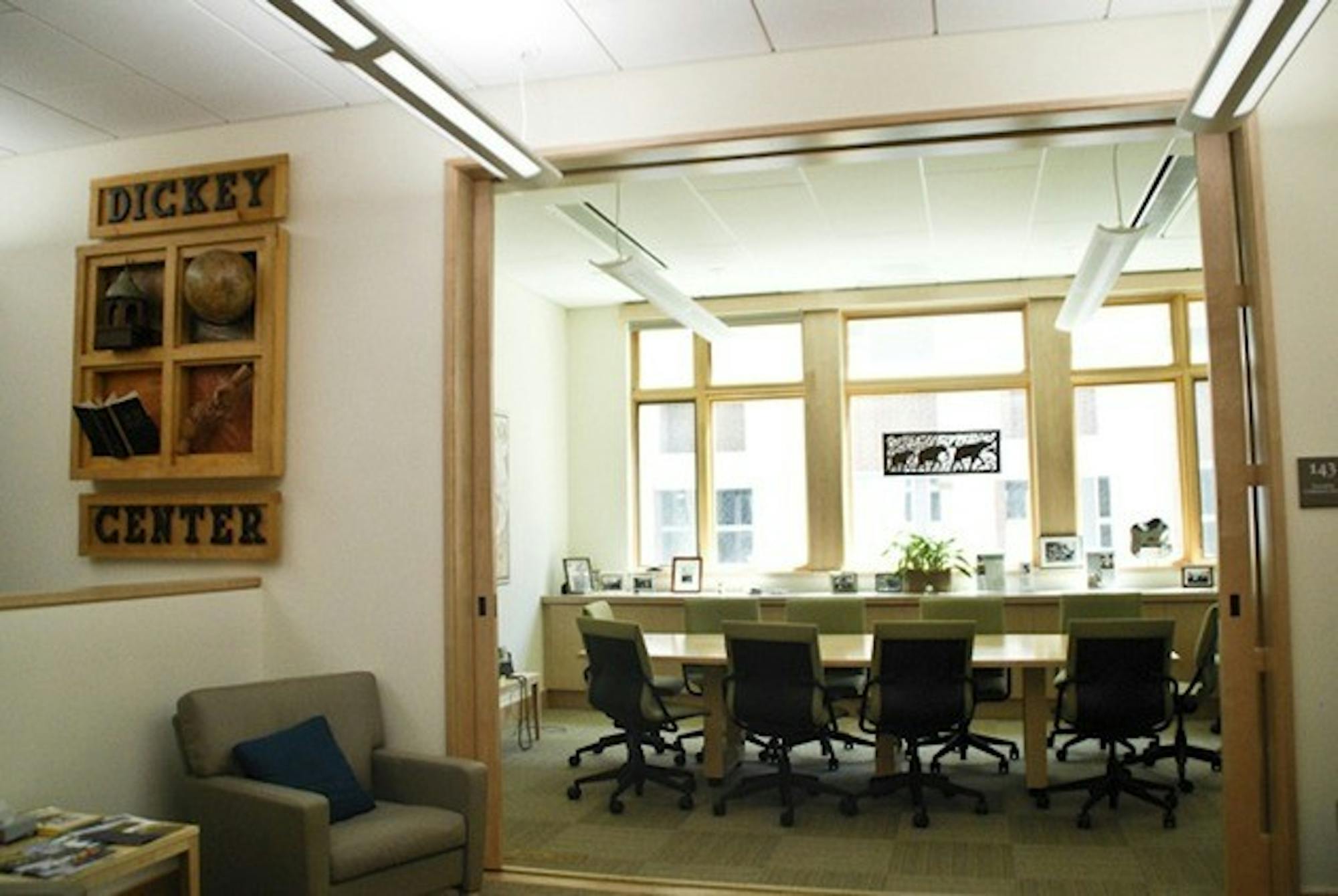The War and Peace Studies Fellows program, run by the Dickey Center for International Understanding, is designed to get students talking about exactly that, both with each other and with internationally-renowned experts on topics ranging from national security and foreign policy to human trafficking and more.
"We honestly have a very limited scope for intellectual conversations to ignite intellect curiosity," Utkarsh Agarwal '13 said. "Student life is not set up like that. It's fast paced, and everyone is focused on midterms and finals. You're not going to be playing pong and discussing Israeli-Palestinian conflict. And although Dartmouth does encourage collaborative learning, a lot of that is division of work rather than conversation."
Originally, the program was imagined as a war and peace studies minor, but was discontinued four years ago with the introduction of the international studies minor, which covered similar issues.
"It was created in the 1990s in the post-Vietnam war era here at the Dickey Center," said Christianne Wohlforth, associate director for the Dickey Center. "They wanted a forum for students to talk about war and peace issues, to really unpack conflict and to bring peace back into the conversation."
Today, students can take "War and Peace in the Modern Age" and petition to have it be part of their international studies minor. However, the fellows program is the cornerstone of the War and Peace studies program here, bringing students and experts together for dinner discussions.
"One of the most important parts of the program, for me, is that the students take the lead in scheduling speakers," said Daryl Press, the coordinator of the War and Peace Fellows program and a government professor. "The speakers that we bring in cover topics that the students choose and the program reflects their interest."
The highlight of the program is a trip to Washington D.C. in the spring. Students meet with elected officials, political activists and professionals in the commercial and private sector of the government.
"It helps students see that the foreign policy process involves so many actors from the government and non-government world," Press said.
Invited guests that the fellows bring to campus are the real deal. Last week, the Fellows dined with CNN chief White House correspondent Jake Tapper '91. Other dinner discussions hosted alums such as Trustee and veteran Nathaniel Fick '99, the CEO of the think tank Center for A New American Security, as well as former College President Jim Wright and faculty members.
The fact that these speakers have real, huge issues to deal with does not mean that they are out of touch with the details of student life. In addition to international issues, students learn about how these experts got where they are today, especially when Dartmouth alums come back to talk.
"The real goal of these meetings in my mind is that students can see in a concrete way that in 10 to 15 years, that can be them," Press said. "It helps students visualize themselves in these positions in the future."
And that's not just the professor speaking. Students feel that the program has allowed them to shape their post-graduate goals, a major aspect of our time at Dartmouth.
"I've gained a perspective on my job search and how to get there," said Julia Fusfeld '13, a program administrator. "The varied routes and paths that esteemed professionals have taken to get where they are has given me perspective and new ideas for how to pursue the career I want to pursue."
Beyond what the experts can offer, there's something to be said for the way the program brings 40 students with mutual interests together each year. But don't make assumptions: students who are most interested in war and peace issues don't always major in government, and this is far from a bad thing.
"The program explicitly draws undergraduates from every part of the college, including engineering, life science majors, the humanities and social sciences," Press said. "The underlying idea is that the pressing topics of war and peace studies involve issues raised by all different areas of knowledge, and our discussions are better because we bring together students with different experiences and career goals."
For students who don't feel that day-to-day life here gives them the kind of real talk about issues that genuinely concern them, the fellows program offers something that is otherwise difficult to find.
"It has in a lot of ways reinforced my belief that if you put a bunch of smart people together in the room, the chances are high that something good will come out of it," Agarwal said. "We have a conversation with a guest and a conversation with each other. It's unlike any other experience at Dartmouth."
Ultimately, fellows are able to gain something beyond their classes and the idea of careers, namely skills and knowledge that can serve them in all areas of their life.
"As students your goal is to build the conceptual frameworks to understand the world as you live it and update it as you have new experiences," Wohlforth said. "Once you can do it in one subject area, it's transferable. You're bringing all the bits of your Dartmouth education together and getting practice as a life-long learner."




